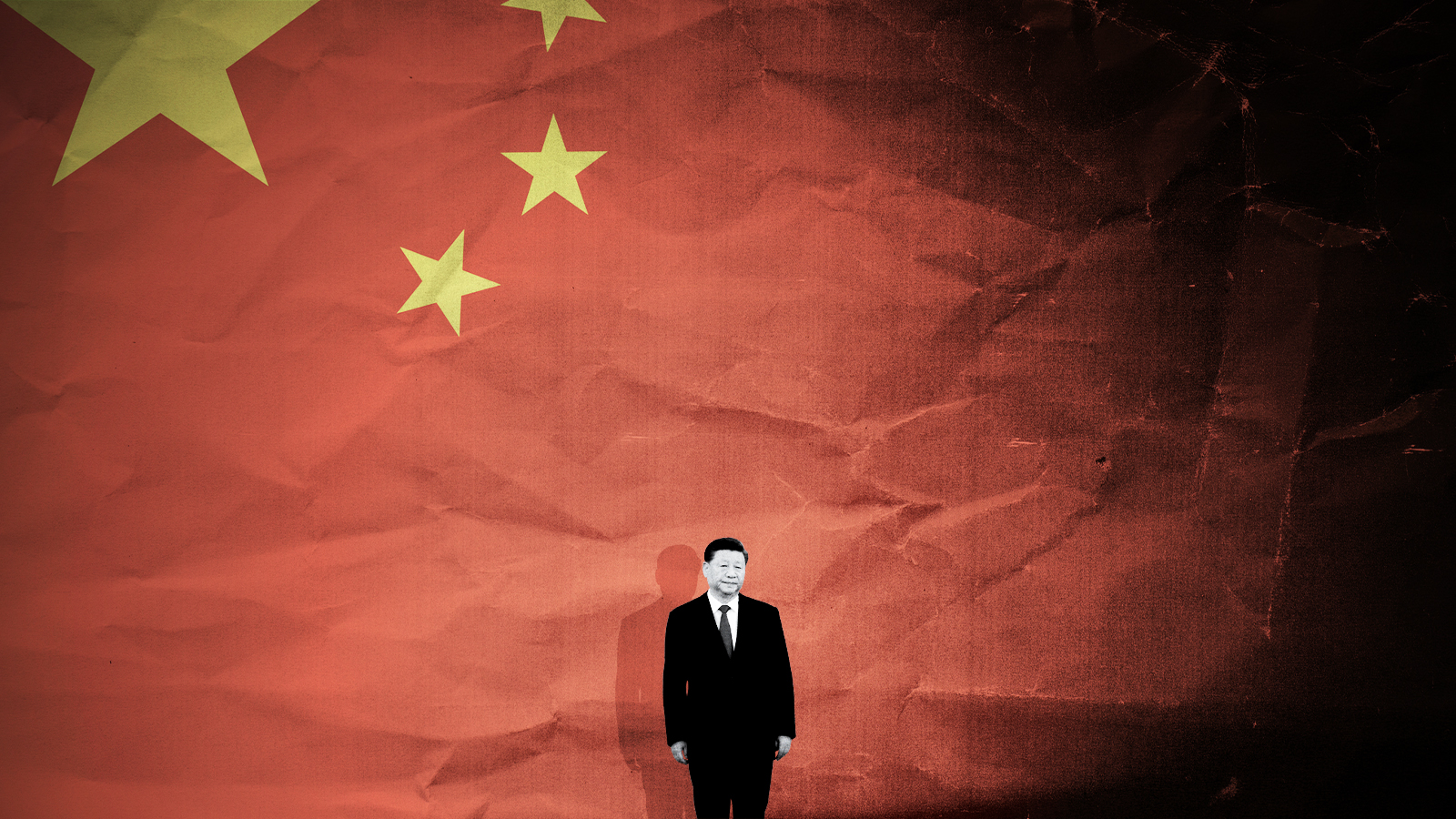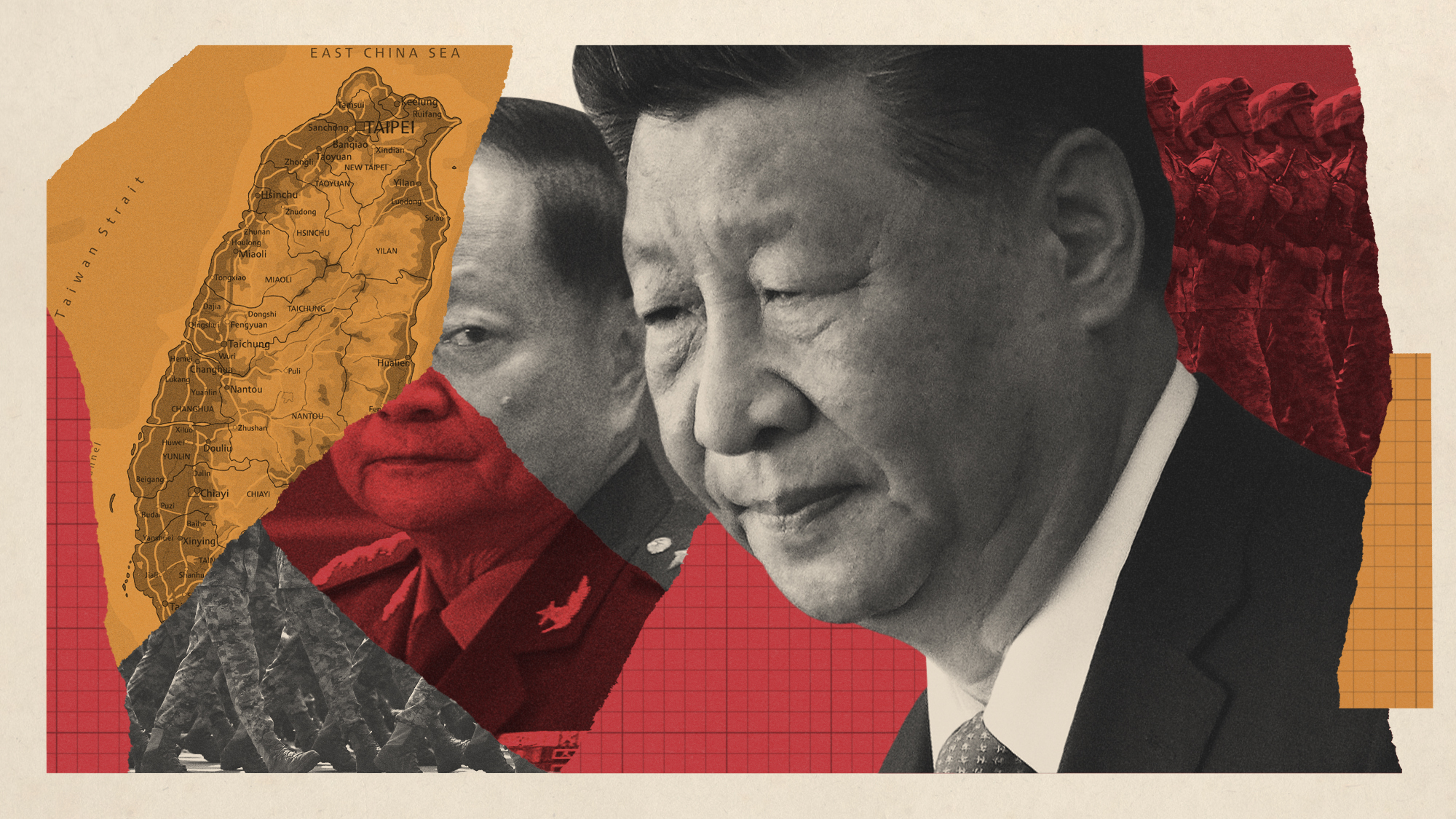Should morality inform foreign policy?
When it comes to America's feud with China, sentiment-driven behavior won't improve things


A free daily email with the biggest news stories of the day – and the best features from TheWeek.com
You are now subscribed
Your newsletter sign-up was successful
"Taiwan is a country!"
Last month, the declaration propagated across social media in response to John Cena's groveling apology for referring to the island nation as such during a promotional interview for his film, Fast and Furious 9. The spectacle of this American action star — cultured, informed, and educated (Cena speaks Mandarin), and also bristling with muscles — abasing himself to appease the prickly Chinese regime crystalized the danger that regime increasingly poses to American norms of free speech.
I applaud any popular determination to stand up to Beijing. Indeed, I hope more and more of Hollywood concludes that the better part of valor is simply giving up on the Chinese market as not worth the hassle or the potential collateral damage. And as a practical matter, of course Taiwan is a country. It has its own armed forces, its own currency, has trade relationships with countries all over the world (including China), has a population that increasingly favors independence and has been governing itself in a democratic fashion for decades. If that's not enough to make it a country, what is?
The Week
Escape your echo chamber. Get the facts behind the news, plus analysis from multiple perspectives.

Sign up for The Week's Free Newsletters
From our morning news briefing to a weekly Good News Newsletter, get the best of The Week delivered directly to your inbox.
From our morning news briefing to a weekly Good News Newsletter, get the best of The Week delivered directly to your inbox.
But from the perspective of geopolitics, "Taiwan is a country" is an incredibly provocative thing to say. And I worry about that. Not because I think American citizens should censor themselves for the sake of American diplomacy any more than they should to appease the Communist Chinese Party — they most certainly shouldn't — but because public sentiment can influence diplomacy in dangerously unpredictable ways. Indeed, that may already be happening in China, with potentially dire consequences.
Notwithstanding that it obviously is one, U.S. government policy suggests that whatever Taiwan is, it's not quite a country. America recognizes only one China, and its government is in Beijing. We strongly oppose any change to the status quo on Taiwan by force, and have provided various kinds of military assistance to Taiwan to deter China from attacking. But we are ambiguous about what we would do if it were in fact attacked, particularly whether we would go to war to defend the island.
This policy of ambiguity can certainly be criticized, and has been, by those who favor appeasement of the People's Republic, and by those who want America to back Taiwan's independence. But those who favor the latter do so because they believe it will force Beijing either into a war it will lose, or into a humiliating retreat from its core foreign policy aim. As a policy matter, declaring that "Taiwan is a country" is basically daring Beijing to attack.
Is that what the hashtag activists want? I doubt it. What I suspect they want is to demonstrate to China that they are not cowed by Beijing's bullying, and to tell the people of Taiwan that they are not alone. Inasmuch as that puts pressure on American corporations not to be cowed either, for fear of tarnishing their brands in America, well and good. But it inevitably also puts pressure on American diplomacy, and that's when I start to worry. Americans like to think of ourselves as standing up for justice and right, and American politicians understand that there are points to be scored at home by posturing to that sentiment. Yet small democracies can get themselves into very hot water assuming that they have America's backing against a larger bullying neighbor, as the Republic of Georgia learned to its lasting regret. If Taiwan wants to maintain its independence, it needs its own robust island defense capable of deterring Beijing. What it needs from America is not provocation, but to buy time.
A free daily email with the biggest news stories of the day – and the best features from TheWeek.com
The same dynamic applies, to an extent, to the atrocities being perpetrated against the Uyghur people in Xinjiang. Those atrocities have been described as a genocide, and that's not an inappropriate term. We should rightly be appalled, and that sentiment should temper our willingness to sustain close economic ties to the regime. But that doesn't mean we have any plausible way of putting a stop to the violence, no matter how much moral clarity we demonstrate. We don't even have good ways of reporting on it, as China increasingly responds to criticism by cracking down on reporters. Even where we are the overwhelmingly dominant power, facing isolated opponents or dependent allies, we have limited ability to dictate to other countries, and we are in no sense overwhelmingly dominant over China. We are very unlikely to bring relief to the Uyghur people by pressuring Beijing, because that pressure will inevitably provoke its own defiant nationalist response.
That nationalism is, in fact, a mirror of the concerns I have about American popular sentiment regarding China. Long stoked by the CCP as a means to bolster regime support, Chinese nationalism is now a popular force in its own right, with so-called "wolf warrior" diplomacy its expression in international affairs. China increasingly lashes out at opposition in ways that do not obviously serve its interests, and it is unclear the degree to which this reflects a decay in Chinese understanding of its opponents, particularly by the increasingly isolated Xi Jinping, or whether China is playing to a popular sentiment that it created in a positive feedback loop.
It is precisely that kind of apparently atavistic and unstrategic behavior that has heightened American concerns about Chinese intentions with regard to Taiwan. It will not improve the situation for America to behave in a similarly sentiment-driven and unpredictable fashion, however noble the sentiment in question may feel.
Noah Millman is a screenwriter and filmmaker, a political columnist and a critic. From 2012 through 2017 he was a senior editor and featured blogger at The American Conservative. His work has also appeared in The New York Times Book Review, Politico, USA Today, The New Republic, The Weekly Standard, Foreign Policy, Modern Age, First Things, and the Jewish Review of Books, among other publications. Noah lives in Brooklyn with his wife and son.
-
 The week’s best photos
The week’s best photosIn Pictures An explosive meal, a carnival of joy, and more
-
 The ‘ravenous’ demand for Cornish minerals
The ‘ravenous’ demand for Cornish mineralsUnder the Radar Growing need for critical minerals to power tech has intensified ‘appetite’ for lithium, which could be a ‘huge boon’ for local economy
-
 Why are election experts taking Trump’s midterm threats seriously?
Why are election experts taking Trump’s midterm threats seriously?IN THE SPOTLIGHT As the president muses about polling place deployments and a centralized electoral system aimed at one-party control, lawmakers are taking this administration at its word
-
 The UK expands its Hong Kong visa scheme
The UK expands its Hong Kong visa schemeThe Explainer Around 26,000 additional arrivals expected in the UK as government widens eligibility in response to crackdown on rights in former colony
-
 ‘Hong Kong is stable because it has been muzzled’
‘Hong Kong is stable because it has been muzzled’Instant Opinion Opinion, comment and editorials of the day
-
 What do Xi’s military purges mean for Taiwan?
What do Xi’s military purges mean for Taiwan?Today’s Big Question Analysts say China’s leader is still focused on reunification
-
 What is at stake for Starmer in China?
What is at stake for Starmer in China?Today’s Big Question The British PM will have to ‘play it tough’ to achieve ‘substantive’ outcomes, while China looks to draw Britain away from US influence
-
 ‘It’s good for the animals, their humans — and the veterinarians themselves’
‘It’s good for the animals, their humans — and the veterinarians themselves’Instant Opinion Opinion, comment and editorials of the day
-
 The billionaires’ wealth tax: a catastrophe for California?
The billionaires’ wealth tax: a catastrophe for California?Talking Point Peter Thiel and Larry Page preparing to change state residency
-
 What is China doing in Latin America?
What is China doing in Latin America?Today’s Big Question Beijing offers itself as an alternative to US dominance
-
 Bari Weiss’ ‘60 Minutes’ scandal is about more than one report
Bari Weiss’ ‘60 Minutes’ scandal is about more than one reportIN THE SPOTLIGHT By blocking an approved segment on a controversial prison holding US deportees in El Salvador, the editor-in-chief of CBS News has become the main story
